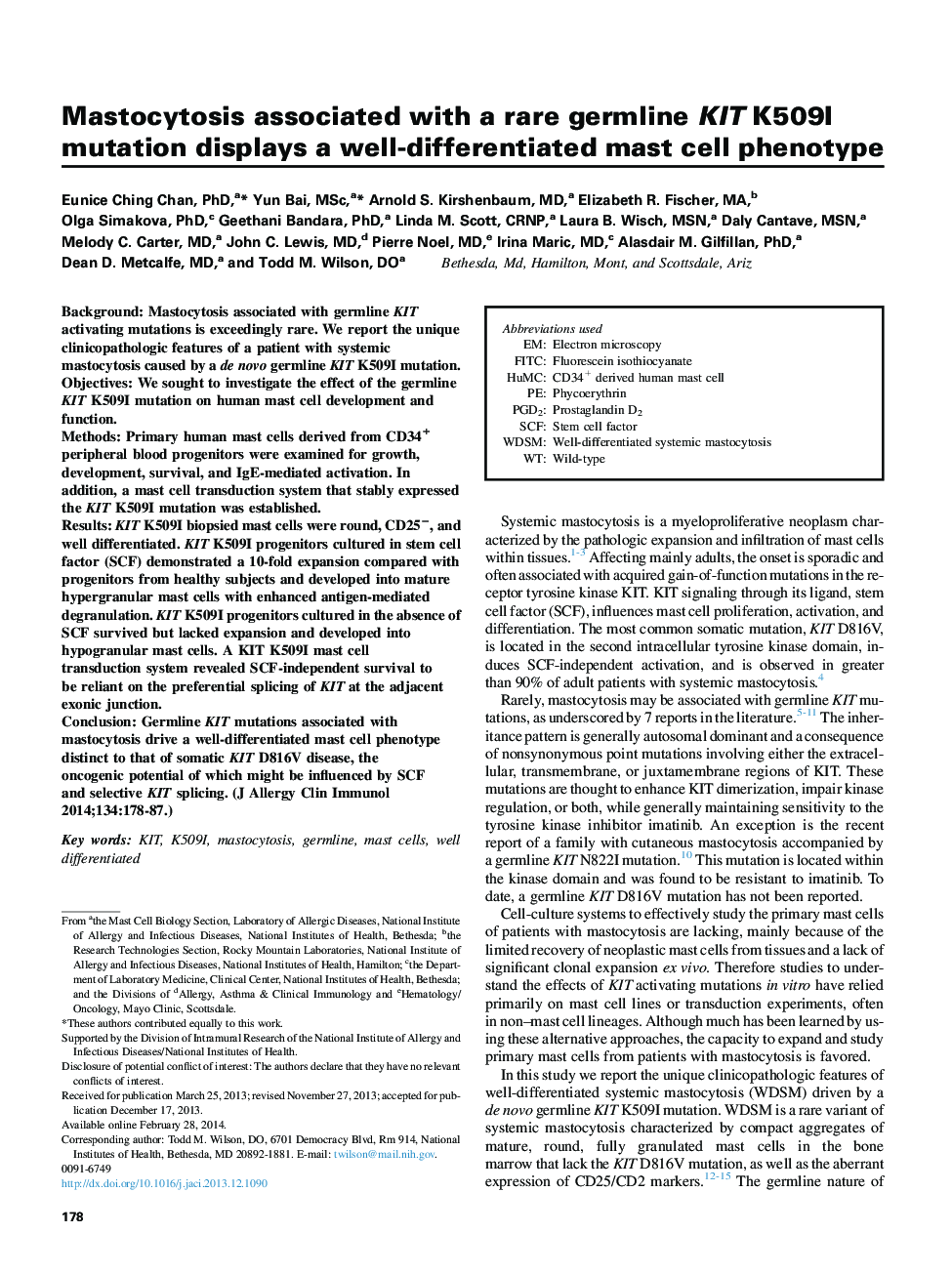| Article ID | Journal | Published Year | Pages | File Type |
|---|---|---|---|---|
| 6066118 | Journal of Allergy and Clinical Immunology | 2014 | 11 Pages |
BackgroundMastocytosis associated with germline KIT activating mutations is exceedingly rare. We report the unique clinicopathologic features of a patient with systemic mastocytosis caused by a de novo germline KIT K509I mutation.ObjectivesWe sought to investigate the effect of the germline KIT K509I mutation on human mast cell development and function.MethodsPrimary human mast cells derived from CD34+ peripheral blood progenitors were examined for growth, development, survival, and IgE-mediated activation. In addition, a mast cell transduction system that stably expressed the KIT K509I mutation was established.ResultsKIT K509I biopsied mast cells were round, CD25â, and well differentiated. KIT K509I progenitors cultured in stem cell factor (SCF) demonstrated a 10-fold expansion compared with progenitors from healthy subjects and developed into mature hypergranular mast cells with enhanced antigen-mediated degranulation. KIT K509I progenitors cultured in the absence of SCF survived but lacked expansion and developed into hypogranular mast cells. A KIT K509I mast cell transduction system revealed SCF-independent survival to be reliant on the preferential splicing of KIT at the adjacent exonic junction.ConclusionGermline KIT mutations associated with mastocytosis drive a well-differentiated mast cell phenotype distinct to that of somatic KIT D816V disease, the oncogenic potential of which might be influenced by SCF and selective KIT splicing.
